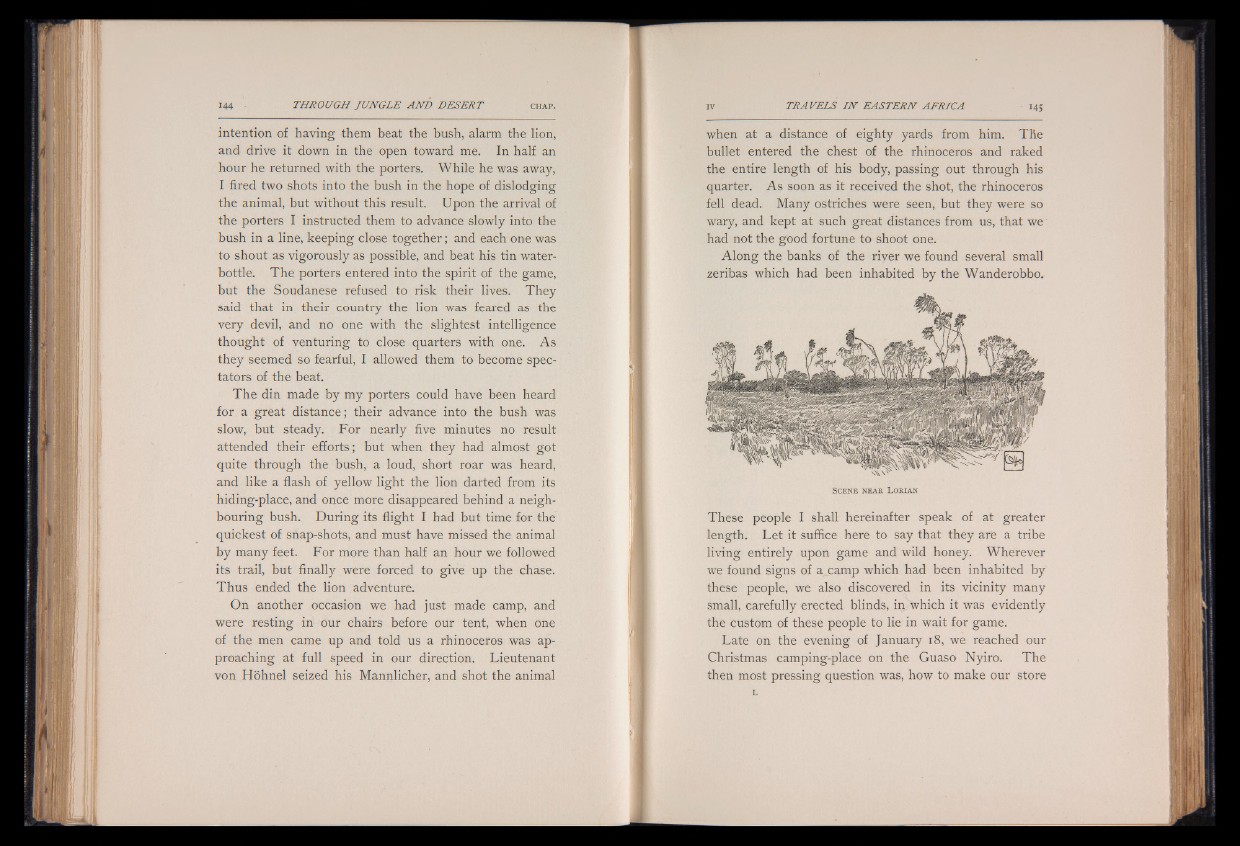
intention of having them beat the bush, alarm the lion,
and drive it down in the open toward me. In half an
hour he returned with the porters. While he was away,
I fired two shots into the bush in the hope of dislodging
the animal, but without this result. Upon the arrival of
the porters I instructed them to advance slowly into the
bush in a line, keeping close together; and each one was
to shout as vigorously as possible, and beat his tin water-
bottle. The porters entered into the spirit of the game,
but the Soudanese refused to risk their lives. They
said that in their country the lion was feared as the
very devil, and no one with the slightest intelligence
thought of venturing to close quarters with one. As
they seemed so fearful, I allowed them to become spectators
of the beat.
The din made by my porters could have been heard
for a great distance; their advance into the bush was
slow, but steady. For nearly five minutes no result
attended their efforts; but when they had almost got
quite through the bush, a loud, short roar was heard,
and like a flash of yellow light the lion darted from its
hiding-place, and once more disappeared behind a neighbouring
bush. During its flight I had but time for the
quickest of sfiap-shots, and must have missed the animal
by many feet. For more than half an hour we followed
its trail, but finally were forced to give up the chase.
Thus ended the lion adventure.
On another occasion we had just made camp, and
were resting in our chairs before our tent, when one
of the men came up and told us a rhinoceros was approaching
at full speed in our direction. Lieutenant
von Hohnel seized his Mannlicher, and shot the animal
when at a distance of eighty yards from him. The
bullet entered the chest of the rhinoceros and raked
the entire length of his body, passing out through his
quarter. As soon as it received the shot, the rhinoceros
fell dead. Many ostriches were seen, but they were so
wary, and kept at such great distances from us, that we
had not the good fortune to shoot one.
Along the banks of the river we found several small
zeribas which had been inhabited by the Wanderobbo.
S c e n e n e a r L o r i a n
These people I shall hereinafter speak of at greater
length. Let it suffice here to say that they are a tribe
living entirely upon game and wild honey. Wherever
we found signs of a camp which had been inhabited by
these people, we also discovered in its vicinity many
small, carefully erected blinds, in which it was evidently
the custom of these people to lie in wait for game.
Late on the evening of January 18, we reached our
Christmas camping-place on the Guaso Nyiro. The
then most pressing question was, how to make our store